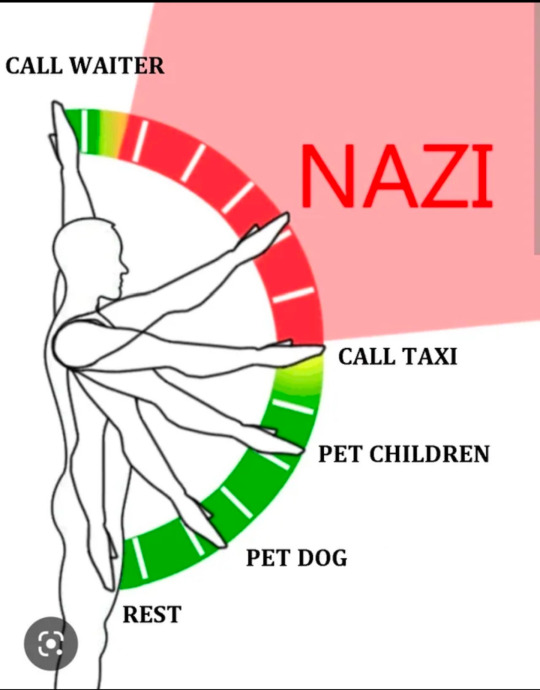Text
What if the Attention Crisis Is All a Distraction?
"When someone calls for audiences to be more patient, I instinctively think, Alternatively, you could be less boring."
0 notes
Text

Vucci’s photograph distills and refines the basic themes of Trump’s political career into a single, explosive image. America is a dangerous place, and this image confirms that. Trump speaks often about how no politician “has been treated worse or more unfairly” than he has. Those wounds are now made real and visible. If blood alone is a sign of service, he has served.
0 notes
Text
Inasmuch as I no longer cling so hard to the good things of life when I begin to lose the use and pleasure of them, I come to view death with much less frightened eyes. When we are led by Nature’s hand down a gentle and virtually imperceptible slope, bit by bit, one step at a time, she rolls us into this wretched state and makes us familiar with it.
— Michel de Montaigne, 16th century
0 notes
Text
Vanuatu sand drawings
Rules indicate the movements that are allowed: an artist must (1) go from node to node without crossing the same path or cutting the grid other than at its nodes and (2) must return to the starting point without lifting their finger.
1 note
·
View note
Text
Adriano Celentano - Prisencolinensinainciusol
5 notes
·
View notes
Text

Arlo and Janis by Jimmy Johnson for March 08, 1996
"What's the point of a fantasy that could never happen?"
0 notes
Text
How Will A.I. Learn Next?
There is too much knowledge, and more of it every day; in some sense, we have outgrown the Web and maybe need something to take its place. New papers in physics are posted online faster than any physicist can read them; a chatbot that can retain and synthesize all that knowledge can’t come soon enough.
Sam Altman, the C.E.O. of OpenAI, is bullish on synthetic data, but there are reasons to be skeptical—including the obvious one that, no matter how smart you are, you can’t learn new facts about the world by reviewing what you already know. In a recent study, researchers trained an A.I. model with synthetic images that it had generated; they then used the resulting model to generate even more training data. With each generation, the quality of the model actually degraded. It only improved when fresh, real images were introduced again.
It might be sensible, in the first stages of such a process, to keep humans in the loop so far as possible. As a start, we should demand that the A.I. companies behave less antisocially. Luther Lowe, of Yelp, has argued that Google could have prevented much of the damage it did to the Web in the past decade if, instead of passing off the Web’s intelligence as its own, it had made a point of pushing users to the places it got its answers. “ ‘Let’s continue to oxygenate the Web.’ ” Recently, when I spoke to the C.E.O. of Stack Overflow about L.L.M.s, the idea of “attribution” came up about a half-dozen times; the same happened when I talked to a representative at Wikimedia, the foundation that operates Wikipedia. These Web sites want chatbots to give credit to their contributors; they want to see prominent links; they don’t want the flywheel that powers knowledge production in their communities to be starved of inbound energy.
Heeding their call might actually reinvigorate the Web—ushering in a golden age of human-led, A.I.-assisted collective knowledge production. And it would set the tone for the further development of A.I. It’s better, in general, to have models that respect human knowledge and encourage its continued production, rather than models that treat us as mere stepping stones—the ladder you throw out once you’ve climbed.
James Somers in The New Yorker
0 notes
Text
People pay to see others believe in themselves.
Kim Gordon - Sonic Youth
0 notes
Text
I modify facts to such a degree that they resemble truth more than reality.
Werner Herzog repeating (or perhaps inventing) a quote from André Gide.
4 notes
·
View notes
Text

La Vierge adorant l'hostie Jean Auguste Dominique Ingres
Musée d'Orsay
0 notes
Text

The Coronation of Inês de Castro in 1361 Musée des Beaux-Arts de Lyon
The subject of this painting is borrowed from the history of medieval Portugal. Prince Peter, then married to Constance of Castile, falls in love with one of his followers, Inès de Castro (around 1320-1355). He secretly married her on the death of his wife in 1354. Learning of this union, King Alfonso IV had the unfortunate woman murdered. In order to take revenge, Peter, who became king, had her corpse exhumed in 1366 and had her crowned queen in a macabre staging. The moment represented here is when he forces the great lords to give back to his late wife, sitting on the throne, the honors due to her and to kiss her hand.
1 note
·
View note
Text
They are kind of the mirrors that come into your life to show you who you really are.
Zandria Robinson
0 notes
Text
Man Called Fran
I asked how Greg had died. All Mike knew was something with his heart. I tried to get Mike to join me in laughing about how crazy they’d been, but he didn’t want to go there. He wouldn’t talk shit about them. That has stayed with me, the way in which he gently refrained. I have resolved to be more like him, less inclined to mock.
0 notes
Text
Freedom is about discovering what you can live without.
Author Claire-Louise Bennett
0 notes
Text
The secret of his lovableness was that he was happy in being kind.
Said of George Henry Lewes, spouse of George Eliot, and quoted in The New Yorker.
0 notes
Text

Bird Cloud - Lyonel Feininger
1 note
·
View note
